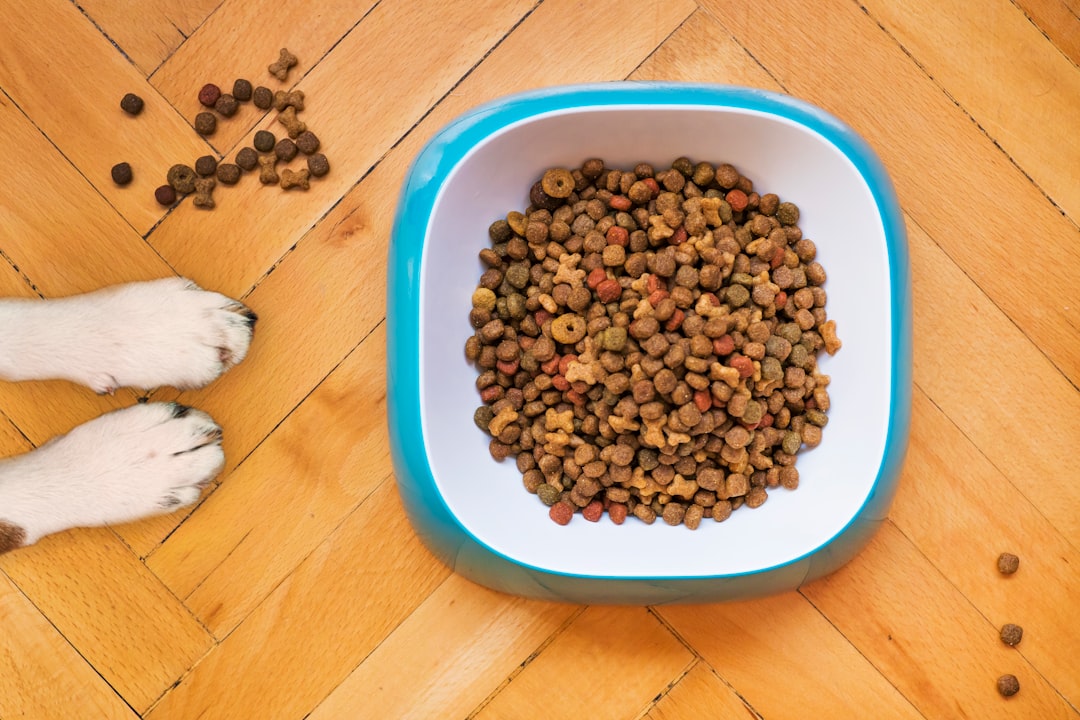The Ultimate Guide to a Nutritious Diet for Your Dog
A comprehensive guide on the importance of a healthy dog diet, including essential nutrients, commercial vs. homemade food, common ingredients, tips for maintaining a healthy diet, and special considerations for raw diets.
Importance of a Healthy Dog Diet
The importance of a healthy dog diet cannot be overstated, as it directly impacts the overall well-being and longevity of your furry companion. Dogs, as omnivores, require a balanced combination of plant and animal foods to meet their nutritional needs. This means that their diet should include essential nutrients such as proteins, fats, carbohydrates, minerals, and vitamins. These nutrients are not only vital for sustaining life but are also tailored to different life stages. For instance, puppies have different nutritional requirements compared to adult dogs, and senior dogs may need a diet that supports joint and brain health.
When it comes to selecting dog food, the emphasis should be on choosing high-quality options with real, recognizable, whole-food ingredients that are backed by scientific principles and research. This ensures that your pet receives a diet that promotes optimal health and supports their specific life stage requirements. For example, a high-quality dog food may include real meat, whole grains, and vegetables, providing a balanced nutritional profile that meets your dog’s needs at different stages of life.
By paying attention to the nutritional content and ensuring a well-rounded diet, you can help your dog maintain a healthy weight, a shiny coat, strong teeth, and overall well-being. Moreover, feeding your dog a nutritious diet from an early age can contribute to preventing various health issues and promoting a healthy, active lifestyle throughout their life span. Therefore, the significance of a healthy dog diet should not be underestimated, as it forms the foundation for your dog’s health and happiness.
Essential Nutrients for a Balanced Dog Diet
When it comes to a balanced dog diet, several essential nutrients play a crucial role in maintaining the overall health and well-being of our furry friends. Proteins, fats, carbohydrates, minerals, and vitamins are all vital components that contribute to a dog’s nutrition. For instance, proteins are essential for building and repairing tissues, while fats serve as a concentrated source of energy. Carbohydrates, on the other hand, provide a source of fuel for the body, and minerals and vitamins are necessary for various bodily functions, such as bone health and immune system support.
The Association of American Feed Control Officials (AAFCO) has been instrumental in establishing nutritional guidelines for commercial pet foods, ensuring that these products offer a well-rounded nutritional profile for dogs. These guidelines provide a framework for balanced nutrition, emphasizing the importance of feeding dogs according to their specific life stages. For instance, puppies have different nutritional requirements than senior dogs, and it’s crucial to tailor their diets to meet their individual needs. By adhering to these guidelines and understanding the unique nutritional needs of dogs at different life stages, pet owners can ensure that their furry companions receive the necessary nutrients for optimal health.
In summary, understanding the essential nutrients required for a balanced dog diet and following the nutritional guidelines set by organizations like AAFCO are fundamental in providing dogs with the necessary building blocks for a healthy and fulfilling life. Whether it’s ensuring an adequate protein intake for tissue repair or providing essential vitamins for overall well-being, a comprehensive approach to canine nutrition is key to promoting longevity and vitality in our beloved pets.
Commercial Dog Food vs. Homemade Dog Food
When it comes to choosing between commercial dog food and homemade dog food, there are several factors to consider. Commercial dog food offers convenience and is designed to meet the nutritional requirements of dogs, incorporating a balance of proteins, fats, carbohydrates, minerals, and vitamins. These products also use preservatives to prevent rancidity, providing a longer shelf life and making them convenient for pet owners with busy schedules. Additionally, commercial dog food may have options tailored for specific life stages, such as puppy, adult, and senior, addressing the changing needs of dogs as they age.
On the other hand, homemade dog food has gained popularity among pet owners who seek more control over their pet’s diet. However, this option requires caution, as formulating a nutritionally balanced homemade diet for a dog can be challenging without the expertise of a veterinary nutritionist. Factors such as the dog’s age, size, activity level, and any specific health concerns need to be taken into account when creating a homemade diet plan. While homemade dog food allows for customization based on the individual dog’s needs and preferences, it is important to ensure that the diet is well-balanced and meets the essential nutrient requirements.
When deciding between commercial and homemade dog food, it’s essential to consider the dog’s lifestyle, the pet owner’s preferences, and their budget. For some pet owners, commercial dog food may be the most practical choice, providing a convenient and nutritionally balanced option for their pets. In contrast, other pet owners may prefer the control and customization offered by homemade dog food, willing to invest the time and effort in formulating a diet with the guidance of a veterinary nutritionist [1]. Ultimately, the decision should prioritize the well-being and specific needs of the dog, ensuring that they receive a diet that supports their overall health and vitality.
Common Ingredients in a Healthy Dog Diet
When it comes to a healthy dog diet, the inclusion of essential nutrients is crucial for the overall well-being of your pet. Proteins, which can come from sources such as chicken, beef, or fish, are essential for muscle development and repair, as well as for maintaining a healthy coat and skin. Fats, obtained from sources like fish oil, can provide energy and support the absorption of fat-soluble vitamins. They also play a role in maintaining healthy skin and a shiny coat.
In addition to proteins and fats, fruits and vegetables can be valuable components of a dog’s diet. For example, blueberries and carrots are rich in antioxidants, which help to support the immune system and overall health. Incorporating these nutrient-dense ingredients into your dog’s meals can contribute to their vitality and longevity. Moreover, the inclusion of grains, such as brown rice or quinoa, can offer a source of carbohydrates for energy, as well as fiber for digestive health [3].
When considering the specific dietary needs of your dog, it’s important to consult with a veterinarian to tailor the diet to your pet’s individual requirements. For instance, some dogs may have sensitivities to certain ingredients, while others may require a specialized diet due to age-related conditions. By customizing the diet to your dog’s unique needs, you can ensure that they receive the necessary nutrients for optimal health and wellness. By thoughtfully incorporating these ingredients into your dog’s diet, you can provide them with a well-rounded and nutritious meal plan that supports their overall health and vitality.
[1] Source: https://vcahospitals.com/know-your-pet/nutrition-general-feeding-guidelines-for-dogs[3] Source: https://www.dogsnaturallymagazine.com/15-tips-improve-dogs-diet-today
Tips for Maintaining a Healthy Dog Diet
Maintaining a healthy and balanced diet for your dog goes beyond just providing the right nutrients – it involves a holistic approach to their overall well-being. Introducing fresh, whole foods and certified organic ingredients into your dog’s diet is a great way to enhance their nutrition. For example, incorporating lean proteins like chicken or turkey, along with a variety of fruits and vegetables, can provide essential vitamins and minerals, contributing to your dog’s overall health [4]. Additionally, opting for organic ingredients can help reduce their exposure to potentially harmful pesticides and chemicals, promoting a healthier lifestyle for your furry friend.
When it comes to maintaining dental and gum health, providing your dog with appropriate chew toys, dental treats, and regular teeth brushing play a vital role. These practices not only help keep their teeth clean but also contribute to their mental stimulation and overall happiness. Furthermore, rethinking your dog’s water source is essential. Consider using filtered water to minimize their exposure to contaminants and ensure they stay hydrated with clean, fresh water. Regularly cleaning your dog’s water bowl with vinegar can also help prevent the growth of harmful bacteria, providing a safe and hygienic drinking environment for your pet.
Taking charge of your dog’s diet also involves considering their exercise routine, skin care, and toilet times. Regular exercise is crucial for maintaining your dog’s weight and overall health. It’s important to ensure they get enough physical activity to prevent obesity and promote cardiovascular health. Moreover, incorporating a grooming routine into your dog’s care can help identify any skin issues early on, ensuring their skin and coat remain healthy. Finally, being attentive to your dog’s toilet times is essential for monitoring their digestive health and identifying any potential issues promptly. By considering all these factors, you can create a well-rounded approach to maintaining a healthy and balanced diet for your beloved pet.
## Raw Diets and Special Considerations Raw diets can offer benefits such as shinier coats and improved dental health but are accompanied by potential risks, especially for homes with young children or individuals with compromised immune systems. It’s important to consult a veterinarian familiar with raw foods to guide in handling and cleaning, considering the opposing stance of the American Veterinary Medical Association on unregulated feeding of raw foods. I hope this information helps you understand the importance of a healthy diet for your dog and provides valuable insights into maintaining their well-being.




